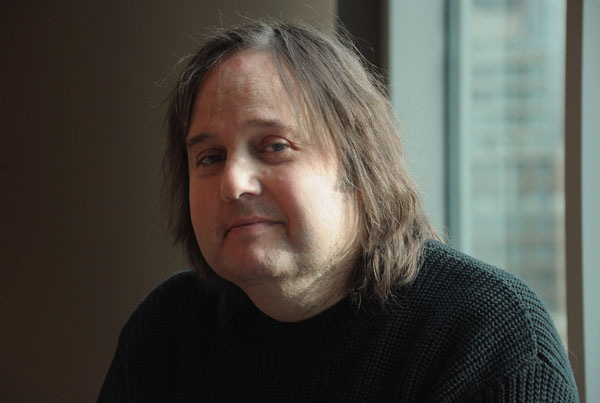Shocking news from Joe Berlinger:
Devastated to report death of my best friend and #documentary partner Bruce Sinofsky this morning.Details to follow. Great man, sad day #RIP
— Joe Berlinger (@joeberlinger) February 21, 2015
Sinofsky, who was only 58, and Berlinger “put themselves on the map with the 1992 documentary Brother’s Keeper about an elderly man in Munnsville, New York, who was charged with his brother’s murder,” writes Maane Khatchatourian for Variety. “They earned a cult following with their Paradise Lost trilogy, which chronicles the 1993 murders of three 8-year-old boys. The film premiered on HBO in 1996 and was followed by Paradise Lost 2: Revelations in 2000. The second documentary explores the possibility that the three children were murdered by one of the victims’ stepfathers, not the three teenagers arrested for the crime [the West Memphis Three], while 2011’s Paradise Lost 3: Purgatory explores another suspect (anther stepfather). The duo went on to shoot the 2004 Metallica documentary Some Kind of Monster about the making of the band’s 2003 album St. Anger.”
Sinofsky, winner of a Directors Guild of America Award, two Emmys, a Peabody and an Independent Spirit Award, began his career as a senior editor for Maysles Films. Among the projects he directed on his own are Good Rockin’ Tonight: The Legacy of Sun Records for PBS/American Masters and episodes of the Sundance Channel series Iconoclasts. In 2012, Sinofsky told Chris Kompanek and Christopher Kompanek in an interview with him and Berlinger for the AV Club that he was “kind of thinking about retiring. I’ve been doing this since 1977…. I want to open up a rib joint in the little village where I live in the south of France. That’s kind of been a dream of ours. Joe can’t possibly stop working, but I could.”
Indiewire‘s Eric Kohn talks with Berlinger:
Bruce encouraged both of us to throw caution into the wind to start capturing what would become Brother’s Keeper in 1991 with no money in our pockets, in the pre-video 16mm age of documentary-making, when making a no-budget film took a little more ingenuity to get in the can. His unique combination of courage and empathy made that possible, as well as everything that came after for us. The extraordinary adventures we had on the road and the deeply stimulating experiences we had in the editing room were life-changing for all of us who knew him thanks to his wisdom and fervor to change the world. Bruce’s humanity is on every frame of the films that he leaves behind, and words can’t express how graced I feel my life has been by having the extraordinary opportunity of being able to say we were partners and, more importantly, best friends.
Scott Macaulay points us to two interviews in Filmmaker, the first in 2004, the second in 2011.
More from Daniel Kreps in Rolling Stone.
Update, 2/28: Bruce Weber for the New York Times: “‘He and I talked about how I was the intellectual and he was the humanist,’ Mr. Berlinger said in an interview on Monday. ‘I would see the big picture and he would connect with people. Even in the darkest, most gruesome situations, Bruce projected a warmth and humor that really put people at ease.'”
For news and tips throughout the day every day, follow @KeyframeDaily. Get Keyframe Daily in your inbox by signing in at fandor.com/daily.




